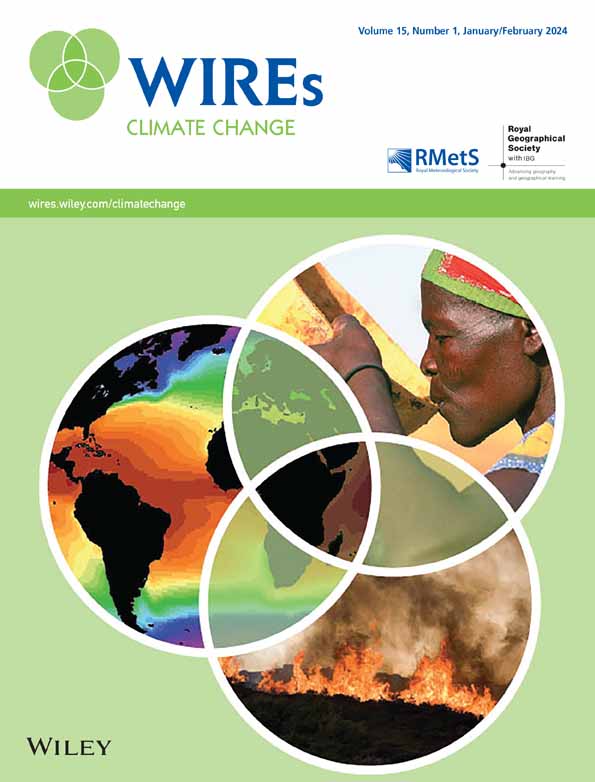小心缝隙!气候科学家应该从威廉·莎士比亚那里吸取合作讲故事的经验
IF 10.3
1区 环境科学与生态学
Q1 ENVIRONMENTAL STUDIES
引用次数: 4
摘要
为了共同生产与当地相关的气候知识,气候科学家正在与利益相关者以及人文、艺术和社会科学领域的学者进行新的合作。作为莎士比亚学者、公共人文主义者和气候科学家,在我们的工作中,我们创造了一种方法,允许研究人员和社区通过共同生产叙事来共同生产知识。我们将新兴气候“故事情节”研究的原则与受威廉·莎士比亚戏剧和戏剧实践启发的合作讲故事相结合。莎士比亚的戏剧激发了合作和诠释,部分原因是莎士比亚在叙事中留下了空白。这些空白允许其他人作为合作者进入,创造一种“认知生态”,促进所有参与者的知识和行动。将这些方法整合到气候故事情节制作中提供了一个激进的范例:它颠覆了科学家作为故事讲述者和专家的角色,相反,它促进了伙伴关系、公平和对多种不确定性的共同探索。研究人员是时候把控制权交给协作行动的认知生态了。本文章由计算机程序翻译,如有差异,请以英文原文为准。
Mind the gaps! Climate scientists should heed lessons in collaborative storytelling from William Shakespeare
To co‐produce locally relevant climate knowledge, climate scientists are engaging in new collaborations—with stakeholders and with scholars in the humanities, arts, and social sciences. In our work as a Shakespeare scholar‐turned‐public‐humanist and a climate scientist, we have created a methodology that allows researchers and communities to co‐produce knowledge by co‐producing narratives. We combine principles from emerging climate “storylines” research with collaborative storytelling inspired by William Shakespeare's plays and theatrical practices. Shakespeare's plays spark collaborations and interpretations, in part, because of how Shakespeare leaves gaps in the narrative. These gaps allow others to enter as collaborators, creating a “cognitive ecology” that fosters knowledge and action among all engaged. Integrating these methods into climate storyline‐making offers a radical paradigm: it upends the scientist's role as the focal storyteller and expert, and fosters, instead, partnership, equity, and a co‐exploration of multiple uncertainties. It is time for researchers to cede control to a cognitive ecology of collaborative action.
求助全文
通过发布文献求助,成功后即可免费获取论文全文。
去求助
来源期刊

Wiley Interdisciplinary Reviews: Climate Change
METEOROLOGY & ATMOSPHERIC SCIENCES-
CiteScore
20.00
自引率
2.20%
发文量
58
审稿时长
>12 weeks
期刊介绍:
WIREs Climate Change serves as a distinctive platform for delving into current and emerging knowledge across various disciplines contributing to the understanding of climate change. This includes environmental history, humanities, physical and life sciences, social sciences, engineering, and economics. Developed in association with the Royal Meteorological Society and the Royal Geographical Society (with IBG) in the UK, this publication acts as an encyclopedic reference for climate change scholarship and research, offering a forum to explore diverse perspectives on how climate change is comprehended, analyzed, and contested globally.
 求助内容:
求助内容: 应助结果提醒方式:
应助结果提醒方式:


